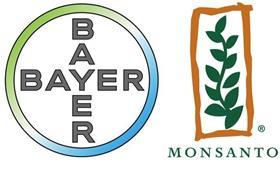
BASF is in exclusive talks with Bayer to acquire the latter’s vegetable seed business, which operates under the trademark Nunhems, as Bayer seeks to address anti-trust regulators’ concerns over its planned merger with Monsanto.
Any deal between BASF and Bayer will reportedly be dependent on the latter's successful completion of the mooted US$62.5bn acquisition of Monsanto, which would make it the world’s largest maker of seeds and pesticides. Bayer said that it hoped to conclude the deal in the second quarter of the year.
Bayer already agreed last October to sell businesses worth €5.9bn to BASF, including glufosinate-based herbicides and seed assets. BASF said the deal marked an opportunity to “enhance its seed platform and the market position of its agricultural solutions business”.
However, a recent survey of 1,000 farmers in the US, conducted by a coalition of farming groups, revealed the level of concern over the proposed Bayer-Monsanto merger.
According to the poll, 93.7 per cent of responding farmers expressed concern that the merger would negatively impact independent farmers and farming communities, with 83.9 per cent “very concerned”.
Respondents’ top three concerns regarding the merger were that the combined company would: use its dominance in one product to push sales of other products (91.9 per cent); control data about farm practices (91.7 per cent); and increase pressure for chemically dependent farming (89 per cent).
A white paper prepared by competition policy law firm The Konkurrenz Group sought to outline why the US Department of Justice’s Antitrust Division should block the deal.
Should the Bayer-Monsanto merger get the go-ahead, the new group would not only be the world’s largest manufacturer of seeds and herbicides, but also the largest cottonseed company and the largest owner of intellectual property and patents for herbicide-tolerant traits.
Tiffany Finck-Haynes, senior food futures campaigner at Friends of the Earth, which helped fund the report, commented: “We urge the Department of Justice to listen to farmers and the more than 1m Americans calling on the department to block the Bayer-Monsanto merger. The only answer to this merger is NO.”



